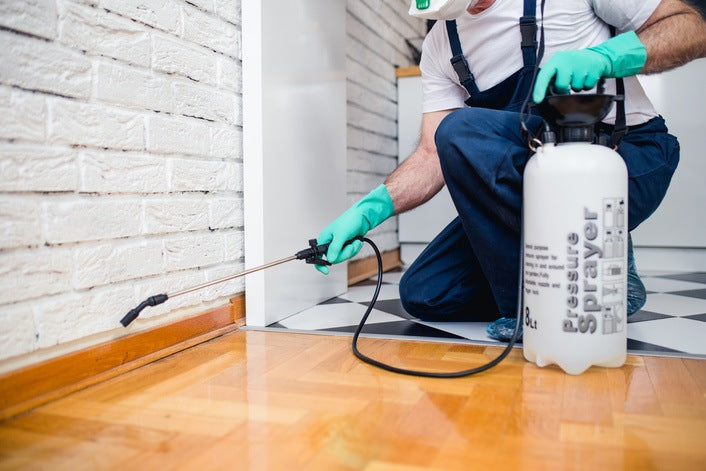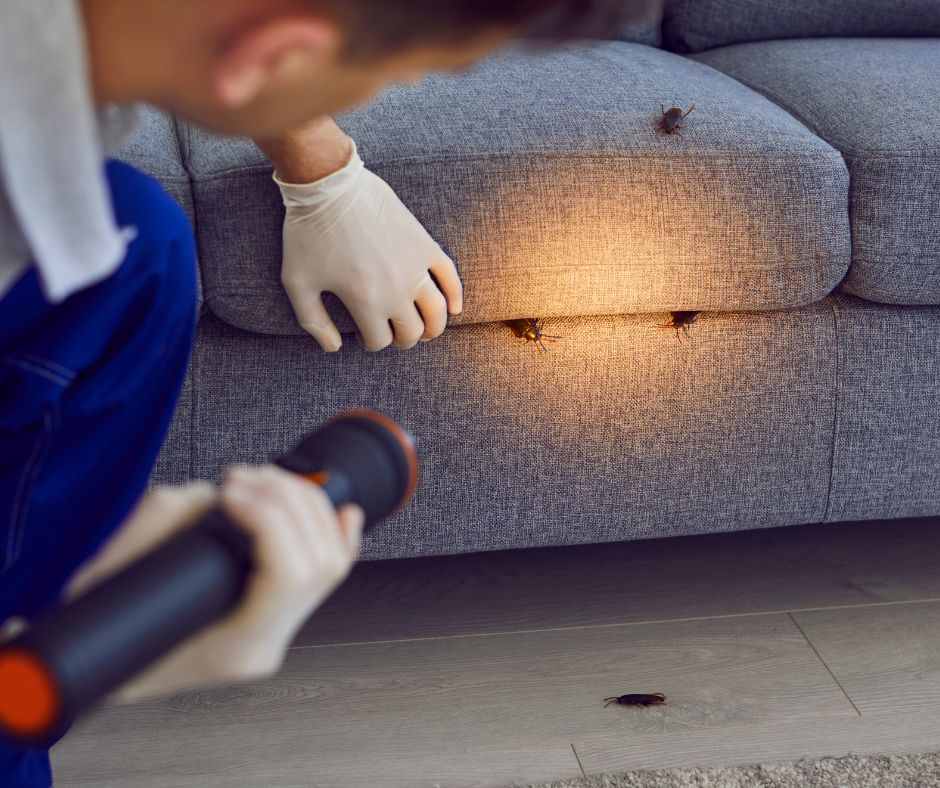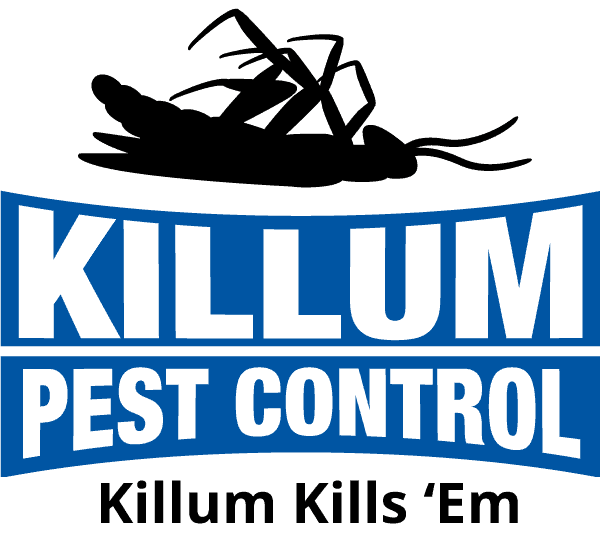Reliable Termite Treatment Port Charlotte to Defend Your Home
Discover the Relevance of Parasite Control in Preserving a Healthy And Balanced Environment and Therapy Strategies

The Function of Pests in Environments
Pests, commonly seen only as nuisances, play a multifaceted role in ecological communities that is important for maintaining environmental equilibrium. They contribute substantially to various environmental procedures, consisting of pollination, nutrition biking, and bug control. As an example, numerous insect species, such as and butterflies, are important pollinators for a large range of plants, which in turn sustains biodiversity and food production.
Additionally, insects act as victim for many killers, developing a crucial link in food internet. This connection ensures the survival of numerous species and helps regulate populations within communities (Termite treatment Port Charlotte). Decomposer bugs, such as certain beetles and fungi, are critical in damaging down organic matter, thus enriching soil and facilitating vitamins and mineral recycling.
Alternatively, while insects can be advantageous, their overpopulation or invasion right into non-native settings might interfere with these environmental functions. This complexity emphasizes the relevance of recognizing bug dynamics, as effective pest monitoring methods need to take into consideration both their eco-friendly functions and potential effect on human tasks. Stabilizing pest presence while decreasing injury is necessary for maintaining the stability of communities and ensuring farming efficiency.
Health Dangers Connected With Pests
The presence of parasites in different environments prolongs beyond their eco-friendly functions, as they also posture considerable health and wellness risks to pets and people. Lots of pests, including bloodsuckers, rats, and pests, are service providers of illness that can have serious health and wellness implications. Rodents are understood to send hantavirus and leptospirosis, both of which can lead to extreme respiratory and kidney issues, respectively.
Bugs such as ticks and mosquitoes are notorious for spreading out vector-borne diseases like malaria, dengue fever, and Lyme illness. These illnesses can lead to high morbidity and mortality rates, especially in prone populaces. Additionally, parasites like vermins and cockroaches can worsen allergic reactions and asthma, adding to breathing issues in people, specifically those with pre-existing problems.
Additionally, the visibility of parasites can lead to psychological tension and discomfort, impacting general wellness. Contamination of food and surface areas by bug droppings and continues to be can bring about foodborne ailments, highlighting the importance of keeping hygienic conditions. For that reason, comprehending the health and wellness risks related to pests is essential in recognizing the necessity of effective pest management strategies to safeguard animal and human wellness.

Advantages of Reliable Pest Control
Effective insect control is important for maintaining a safe and healthy and balanced atmosphere, as it consistently alleviates the many dangers associated with parasite invasions. One of the primary advantages of effective parasite administration is the reduction of wellness risks.
Additionally, reliable insect control safeguards home and frameworks from damage. Many bugs, like termites and carpenter ants, can trigger comprehensive structural damages that might require pricey repair work. By proactively taking care of these house owners, infestations and services can secure their financial investments.
Another substantial benefit is the renovation of overall lifestyle. A pest-free setting adds to mental wellness and minimizes stress associated with invasions. Moreover, reliable pest control cultivates a safer atmosphere for animals and children, making sure that homes stay shelters without harmful chemicals and disease-causing organisms.
Typical Parasite Control Strategies

In the realm of parasite administration, various methods are used to battle problems successfully. These techniques can be generally classified right into three main strategies: look at this web-site cultural, mechanical, and chemical controls.
Cultural control includes modifying methods to reduce insect facility, survival, and reproduction. This might include plant rotation, appropriate sanitation, and habitat adjustment, which jointly create an atmosphere much less favorable to pest spreading.
Mechanical control utilizes physical approaches to remove pests (Termite treatment Port Charlotte). Techniques such as vacuum cleaners, obstacles, and catches are generally used to straight get rid of parasites from a location. This approach is especially efficient for handling rodents and bugs without making use of damaging chemicals
Chemical control includes the application of pesticides to manage pests. These compounds can be classified right into herbicides, pesticides, and fungicides, each targeting particular types of parasites. It is critical to make use of these chemicals judiciously, adhering to safety guidelines and regulations to minimize possible damage to non-target types and the environment.
Each pest control strategy has its benefits and restrictions, and usually, an incorporated method combining several techniques yields the most effective outcomes in maintaining a pest-free setting.
Lasting Insect Management Practices
Lasting insect click here for more monitoring methods incorporate a variety of strategies made to minimize ecological influence while successfully managing pest populaces. These methods prioritize using eco-friendly techniques over chemical pesticides, therefore minimizing the danger of harm to non-target varieties, including advantageous pests, wild animals, and human beings.
Integrated Insect Monitoring (IPM) is a foundation of lasting methods, combining organic, cultural, mechanical, and chemical strategies to take care of insects. Organic look here control includes introducing natural killers or bloodsuckers to subdue insect populaces. Social techniques, such as crop rotation and polyculture, interfere with pest life process and enhance environment strength.
Mechanical methods, such as traps or obstacles, can efficiently protect against pest access without chemical intervention. Furthermore, preserving healthy and balanced ecological communities via proper soil administration, plant health, and biodiversity can naturally alleviate pest problems.
Education and understanding are crucial elements, equipping areas and people to identify pest risks early and apply safety nets. Termite treatment Port Charlotte. By promoting an alternative method that stabilizes insect control with eco-friendly honesty, sustainable pest management methods not only shield structures and crops but also add to a much healthier environment for future generations
Conclusion

Comprehending the wellness dangers connected with bugs is vital in identifying the requirement of efficient bug administration techniques to secure human and animal wellness.
Effective bug control is necessary for preserving a healthy and risk-free setting, as it constantly mitigates the many dangers associated with pest problems.Integrated Bug Administration (IPM) is a cornerstone of sustainable techniques, integrating biological, social, mechanical, and chemical tactics to handle parasites. By understanding the function of parasites, recognizing connected health and wellness risks, and using diverse therapy methods, a sustainable technique to pest monitoring can be achieved. Integrated Insect Administration (IPM) stresses an all natural method that mitigates injury to useful organisms while successfully controlling parasite populaces.